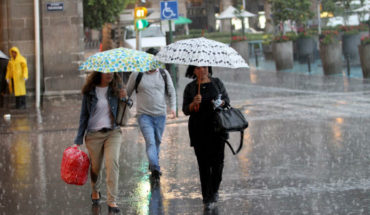New Zealand raised the minimum wage and raised taxes on the wealthiest, two measures that will come into force tomorrow and are part of the efforts of the government Jacinda Ardern to fight inequality and boost the economy after the impact of covid-19. The new minimum wage will rise from NZD 18.90 ($9,500) to NZD 20 ($10,119) per hour, according to the announcement made on Monday by New Zealand Prime Minister Jacinda Ardern, announcing this measure that they are part of key election promises and will benefit 175,000 people. Also from Thursday the maximum tax will increase to 39 percent on the income of people earning more than NZD 180,000 ($91 million), when the cap was 33 percent before. The measure is expected to affect two per cent of taxpayers. According to official estimates, this new tax threshold, which is part of a series of tax measures, will provide an additional NZD 550 million (US$384 million) to the tax coffers for the 2021 financial year and 634 million NZD (US$443 million) by 2024.Ardern noted on Monday, following the Cabinet meeting, that the series of measures that come into force on 1 April “represent “real and long-awaited improvements in the support we provide to our most vulnerable (people).” The increase in the minimum wage, which affects many key workers during the covid-19 pandemic, has been praised by trade unions and criticized by businesses claiming that they have not yet recovered from the economic damage left by covid-19, which prompted various confinements, especially in the city of Auckland.” Precisely when some 1,000 businesses have recently closed, and when especially many people in the hospitality sector tell us that they can no longer with the increases because they have trouble paying rents,” opposition leader Judith Collins told the TVNZ caden on Wednesday. According to data from new Zealand’s Ministry of Social Development, the country’s companies have hired more staff since the beginning of the year, although there are still more than 200,000 people receiving unemployment aid, nearly 60,000 more than in mid-March, when the pandemic began. A report by the Ministry of the Treasury published last December indicates that the deficit for fiscal year 2020/21, which ends next June 30, will be NZD 10.1 billion (US$7,156 million), which is below forecast, although net debt will increase to 45.6% of GDP by 2023-24.New Zealand, which closed its borders to curb the pandemic and ordered one of the world’s strictest confinements in March when it had only 50 cases, it accumulates with 2,141 confirmed infections and 26 dead.
translated from Spanish: New Zealand raised minimum wage and raised taxes on the richest
March 31, 2021 |





